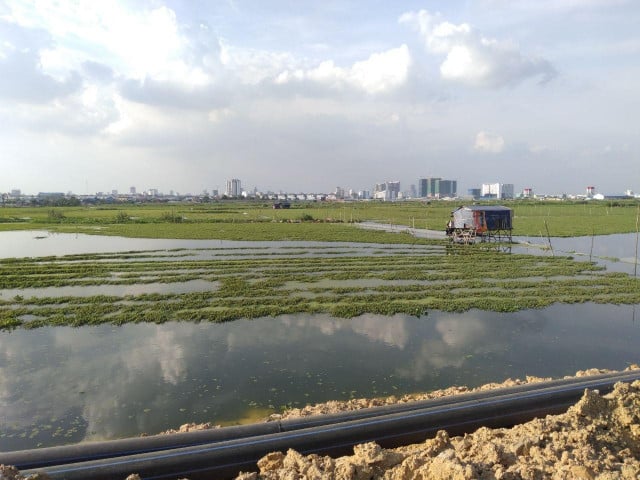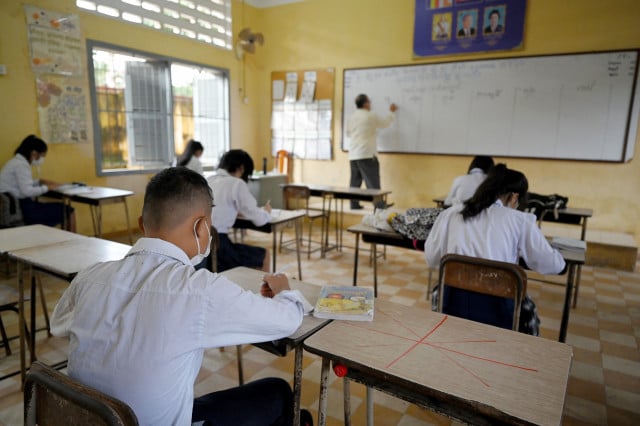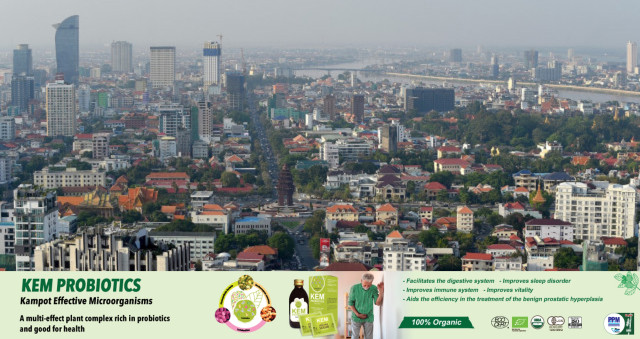Report: Unsustainable Development of Wetlands Threatens 1M Cambodians

- Phoung Vantha
- July 27, 2020 5:14 AM
Flooding, homelessness and wide-reaching environmental impacts have not been taken into account by developers filling in Phnom Penh’s wetlands, a new report warns.
PHNOM PENH--More than one million people across Phnom Penh are facing the risk of increased flooding and over one thousand more families are at risk of homeless as unsustainable developments destroy the wetlands in the capital’s south, a new report says.
The report was published on July 27 by a consortium of rights groups including Equitable Cambodia (EC), Cambodian League for the Promotion and Defense of Human Rights (LICADHO), Cambodia Youth Network (CYN), Sahmakum Teang Tnaut (STT). The report seeks to highlight the critical impact that destroying the Boeung Tompoun and Cheung Ek wetlands will have for more than a million Cambodians.
Following a 2004 lease given to ING Holdings for the development of a satellite city, large swathes of the 1,500 hectares of public land have been given to a range of private corporations including Chip Mong, AEON Mall, Orkide Villa, and Borey Peng Huoth.
“The wetlands are now likely to be all but destroyed, with over 95 per cent of the 1,500 hectares already leased to developers,” report said.
According to the report said that those wetlands are sustaining local communities and play a vital role in Phnom Penh’s waste water management and flood prevention. Without these wetlands, more than a million people in Phnom Penh will endure increased flooding.
Many families reported that their primary income was based on planting crops on the wetlands, or by fishing in the area, which they will not be able to do once the wetlands are destroyed. Additionally, the right to adequate housing may be compromised as eviction is a very real possibility for the hundreds of households without land titles.
“The Government has the responsibility to ensure that it protects people from human rights abuses,” said Soeung Saran, executive director of Sahmakum Teang Tnaut. “This report is designed to highlight the risks so that the Government can take action where appropriate now."
The report said that over 90 per cent of the wetlands will be destroyed and warned that the Bassac and Mekong rivers will become polluted as a direct result of these developments, given that the wetlands acts as a semi-effective natural waste water treatment resource.
If the wetlands are lost, the report warns that wastewater will either enter the Bassac River, the Mekong River, or both. This untreated sewage and rain water will pose serious risks to fish populations and communities that depend on the river for water and food. The wetlands are home to a host of wildlife, including several threatened species. The destruction of these wetlands will put these animals and the broader biodiversity of this area at serious risk.
“Fish may die, birds may die, and this will of course affect other animals and humans. It is not clear what mitigations are in place to protect against this unrepairable environmental damage,” said Eang Vuthy, executive director of Equitable Cambodia. “[The] government needs to ensure the laws are respected and [that] strong environmental and social safeguards are in place. More research and public participation is required for projects like this as it will affect millions of citizen and the future of the Phnom Penh City.”
The report also finds that much of the sand used to infill the wetlands area is being dredged from the Mekong and Bassac rivers. The amount of sand required to fill in the wetlands is estimated conservatively to be 77,000,000m3, or more than 100 million metric tons. Sand dredging from the nearby rivers poses a significant risk to the environment and local populations living nearby.
Land Management Ministry spokesman Seng Lot could not be reached for comment on July 27.















